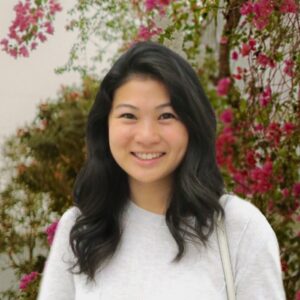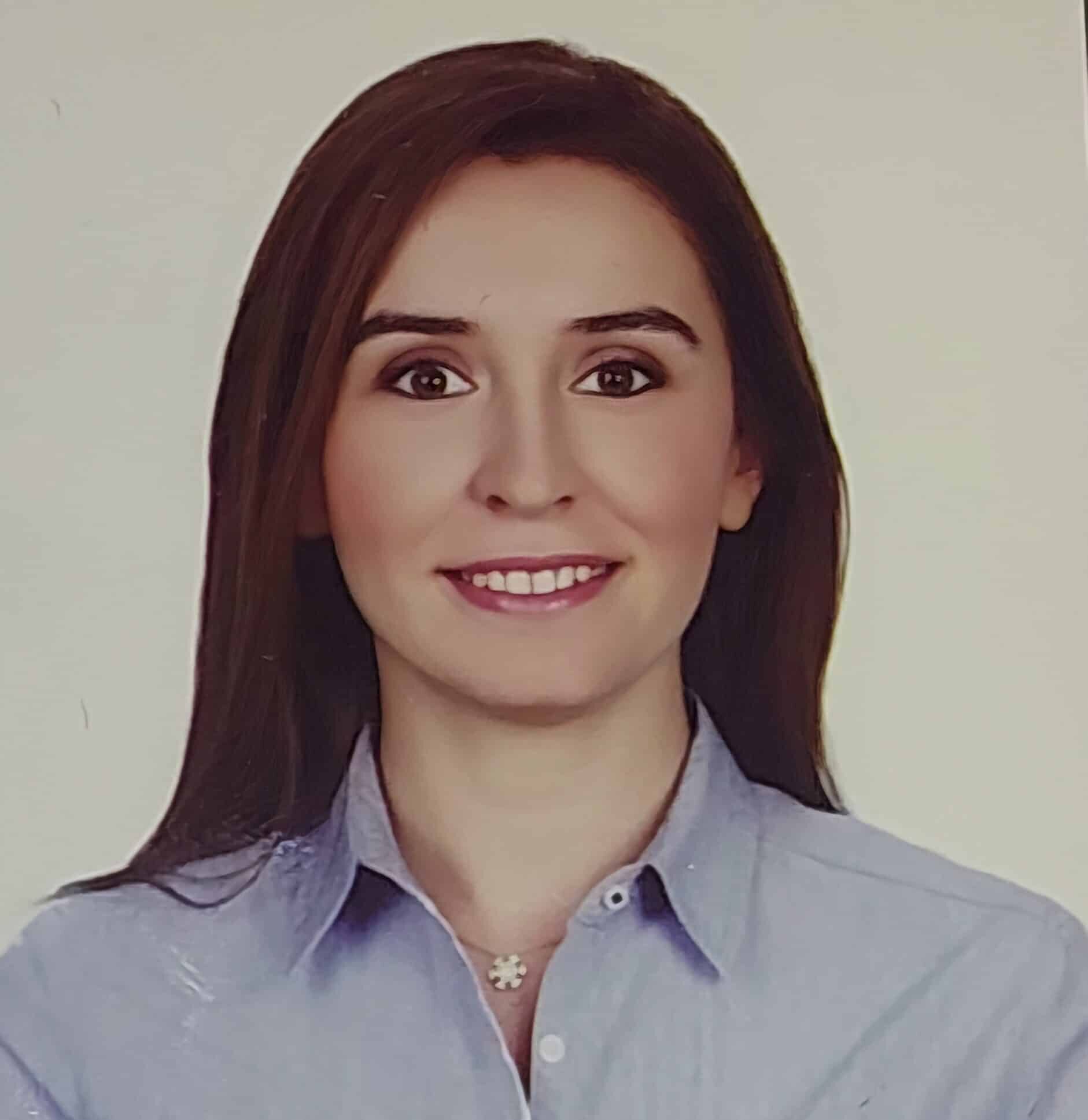FMCA graduates are united in their goal to make a positive impact on individuals and their communities through health coaching. But there are many different paths to success for a health coach after graduation from FMCA’s Health Coach Certification Program.
Kwan Lieu is an FMCA graduate who is also a member of FMCA’s Alumni Program. Follow along to learn more about her journey.
“It’s been great being a part of the Alumni Program. Once you graduate there is the natural momentum to start your health coaching career and just having that extra support is helpful.”
Kwan Lieu
Alumni Kwan Lieu found her health coaching niche after graduation. She is currently working in a collaborative care team alongside therapists at Anise Health. Working in mental healthcare is her niche.
In our Alumni Feature interview, Kwan shares her experience getting started in her career post-graduation. She offers her insight into the value and importance of finding a health coaching niche and how it can help you find a job you are passionate about. She found her niche through the FMCA alumni program workshops, specifically the trauma-informed coaching workshop.
Kwan offers her tips on job searching and networking. She shares how she was able to find her current position by casting a wide net and not being scared to reach out online. What’s more, Kwan shares her gratitude for the FMCA alumni program community. Not only is the community there to help give feedback, but they are there to help support each other when times get tough.
Kwan Lieu is an FMCA Graduate for Life.
Watch the Interview
Watch Kwan Lieu’s Alumni Feature interview with FMCA

Kwan Lieu is inquisitive by nature. Her coaching style flows from curiosity and compassion. She has a keen eye for converting challenges into opportunities for meaningful growth and creating safe spaces for clients to discern their motivations, values, and vision for optimal health.
She is passionate about walking alongside clients as they heal from trauma. To counter the vicious cycle of rumination, she guides clients to engage in the present moment by immersing in the five senses, practicing autonomous reframing to foster a sense of control, and exercising the imagination by visualizing safety cues. She takes a gentle approach, celebrating incremental changes that bring the client to a calmer, more regulated parasympathetic state over time.
Connect
Join the FMCA Alumni Program
Explore how you can take your community, your career, and your coaching to the next level in the FMCA Alumni Program. We offer a wide collection of resources and opportunities in the FMCA Alumni Program to help you GROW as a Functional Medicine Certified Health Coach!
You’re not alone! FMCA is committed to your success, and that doesn’t end after graduation.
Transcript
Kerri: Tell me a little bit about your career as a health coach.
Kwan: It’s been a journey, and I think probably a lot of health coaches can relate with that. Getting started, I always feel like, is the hardest part, and just coming back to what our motivation is, why we did this program. I think that’s very important to remind ourselves to keep that momentum.
I’ve explored different paths, and I’m really thankful to have found, kind of, my niche and my interest. And actually I primarily work with licensed therapists in the mental health field.
So, the therapist and I will provide collaborative care and the therapist will work with the client on the past and how some of the behaviors have come to form. And then with the health coaching side, we work in parallel, and I focus on the future of, what is the behavior that the client wants to work on and change? And what are those smart goals and those practice steps that we can take? So, it’s a really beautiful model.
And, yeah, I think, with health coaching, you have to… I think it’s valuable to find a niche and have that self-reflection of what type of service you want to provide and what’s meaningful to you and getting a bit creative of how you can collaborate with others and see the value of the coaching model. So, it’s definitely been a journey and exploring and dipping my foot in different places, but I’m happy to have found a niche and to be building that network and working with clients in that way.
Kerri: That’s really wonderful. And I think, too, you know, it’s more than just doing a job search on health coaching. It could be called different things, right? It could be a behavior coach. I think you were mentioning some other things that you were, sort of, you know, talking about as well, that you were, you know, like a support.
Kwan: Yeah, I think there’s a lot of different ways that you can be searching. Of course, health coach, functional medicine health coach, wellness coach, behavioral health coach, care coordinator, care support, care manager. There’s a lot, and I think it’s important as, you know, health coaching in terms of a career is in development. And just to get creative and try different avenues and be open-minded as you get started in learning about different possibilities how you can use your coaching certification even if it’s not so straightforward at first.
Kerri: Yeah, I think that’s wonderful advice. So, I appreciate that, and I’m sure new graduates will appreciate hearing that. Tell me how did you approach those therapists. Did you cold call? Did you have a relationship already with a couple of therapists? What did that look like for you?
Kwan: It was a process where I knew… As I was even going through the FMCA program, like, I knew I had that leaning. And I value the mental health support and the different modalities that licensed therapists used. And I saw that there was a value in… Actually, you know, I’m lost. That’s fine, right?
Kerri: Yeah, yeah. It’s totally fine. That’s okay.
Kwan: So, the question is, how did I find it?
Kerri: Yeah.
Kwan: How did I find that path?
Kerri: Yeah. How did you collaborate? Like, you know, in terms of finding and working and building this beautiful partnership with these mental therapists, you know, what did that look like for you? Did you have a specific office or clinic in mind? Did you know somebody that worked in that field that you felt like you had some rapport with that you could collaborate with and build a program?
Kwan: Honestly, I did cast a net very wide and, yeah, I did do a bit of outreach looking on LinkedIn and doing those different search terms. I think it’s very important. And that’s where I did come across. And then within my network, hearing about… I’m part of the Asian American Network, and there was a business that they spotlighted, which is called Anise Health, and I’m a behavioral health coach with them. And just hearing about them and just reaching out actually, just sending an email saying, “If they’re looking for more behavioral health coaches and sharing a little bit about my background…” Actually that platform was working very closely with Wellcoaches, another organization. But I think that’s an opportunity perhaps with FMCA to partner with them and to give health coaches opportunity to gain experience and to work for those coaches who are interested in the mental health field and behavioral health.
But, yeah, it was through keeping my eyes open, and being proactive, and looking, and just reaching out. You never know how people will respond, whether it is a job post or it’s just a company that has been highlighted that you’re interested in and just sending an email and seeing what could happen. I think that’s probably the best advice I could give is…I feel like I’ve said it quite a bit in our short conversation, but just be open, be creative, and put yourself out there and just see what can happen. And if you have an idea of how you can work with them, share it with them and begin that ball and get that rolling of sharing and taking a collaborative approach.
Kerri: Wonderful. Yeah. Again, great advice, keeping your eyes open, being creative. I really like that perspective of being creative. And here you are, you know, working as a behavioral health coach and it might not have been a search term, but you know, that’s what someone else is referring to you as, and that’s what we do, right? We’re behavior change specialists. So, that’s great. I love that you said that you cast a wide net and you just kept a space, an opportunity open for yourself. So, thank you. Tell me how did your student experience at FMCA support you for your career.
Kwan: LTS groups, of course, was critical and just being able to practice those skills and to see how different people and your classmates are…what they bring to the table and learning from one another. And the big part for me was there was a classmate that I really connected with. And even during our program, we were just practicing, coaching each other on the side. And once we graduated, we both continued to do that, and it was really helpful. My classmate was very proactive, and I feel like was always, kind of, one step ahead of me and just motivating me to and spotlighting that path of what it looks like and what it takes to get there. So, she took the board exam first. And in the job process, just sharing different opportunities that we thought were suitable for each other and just having that support and someone else to remind you, because at times, it gets hard that you can do it and that it can be challenging but it is really rewarding and you’re not doing it by yourself.
And, yeah, just bouncing ideas back and forth from one another and coaching each other through the more difficult times of getting back in tune with your deep motivation and what drives you to want to make this career change. And I think that’s really helpful, just having someone to do that in so many layers from your own emotional support and processing to the practical steps.
Kerri: Yeah. So, it sounds like you had a really good accountability partner.
Kwan: Yeah, exactly.
Kerri: Yeah, that’s great. And you know, that is what I think a lot of our coaches say about FMCA and our community is that it is such a strong, powerful community and together we’re here to support each other and strengthen numbers, right? And it’s so great when you’re having those tough times or, you know, struggling a little bit that you have such a huge array of facilitators and colleagues to reach out to. The FMCA alumni program, I would love to ask how did it help you and what has your experience been like.
Kwan: It’s been great being part of the alumni program. I think, once you graduate, there’s that natural momentum to want to get started in your health coaching career and just to have that extra support. I’ve utilized the Facebook group and just, you know, when I had a question about the National Board Exam or about working with a particular case and client, it’s been nice just to be able to put that out there and have feedback from the community and people who’ve graduated before me and have a bit more experience in that. So, that’s how I’ve utilized it in, kind of, immediately after the program.
And there’s also the workshops. There’s one on PTSD and trauma that was really informational and informative. And it was a great showing of 20 plus people who have graduated and are working in that context. So, it’s pretty neat in terms of all the different types of workshops, and they can be pretty specific about your particular interests or niche or area focus. There’s something for everybody.
Kerri: Yeah, definitely. Thank you so much for sharing that feedback. And, you know, you raised a good point, too, just thinking about that trauma-informed coaching and how important that is. You know, I think we can all use it, and I think it’s a great skill for all coaches to have. So, I’m glad that you were able to take part in that and got something from it and from the community.
Yeah, wonderful. Well, thank you so much for your time today, Kwan. I really appreciate it. And I can’t wait to see what kinds of things you do in the future and hear about all of your successes. And we invite you to come back and, you know, join with our new grads and share the successes that you’ve worked so hard to achieve. And the future is nothing but possibilities. So, thank you so much.
Kwan: Appreciate it. Thanks, Kerri, for giving this time and reaching out in this way.
Kerri: You’re welcome.
Our Latest Blogs
-

Student Spotlight: Günseli Saygi
Read Full Article: Student Spotlight: Günseli Saygi -

37 Healthy Aging Tips From The Experts
Read Full Article: 37 Healthy Aging Tips From The Experts -

How To Live Longer: Simple Philosophies From Leaders in Health
Read Full Article: How To Live Longer: Simple Philosophies From Leaders in Health

